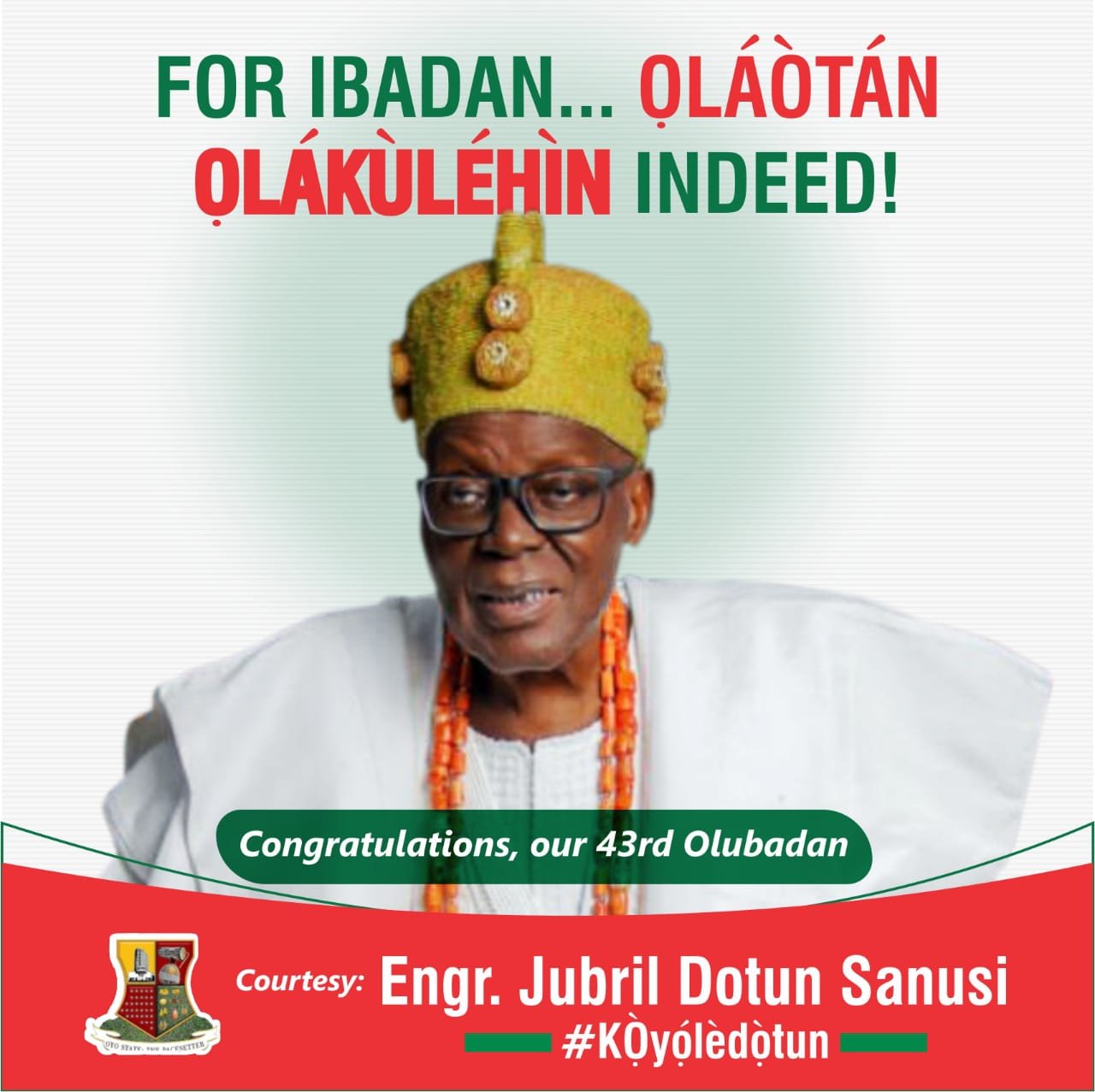He is an intellectual warrior of global repute. The rightful heir apparel to Ibadan great warriors: Ogunmola, Oluyole, Lagelu, and other legendary liberators of the city. He is a dogged fighter whose life has been about “righting” the wrongs—writing the wrongs about us. Of course, his weapon is a pen, not a sword. He has lived. But still lives. He is a legend who lives among us. The scholar who gave voice to his people. By far, he is simply one of the most passionate, patriotic, and compassionate Nigerians on earth.
Give it to him; he loves his country with all his heart. When others see doom, he sees light. Where others see obstacles, he sees opportunities. He will never join the critics in bringing the country down. But he is not an eternal optimist. He is a realist who’s never shied from pointing out where shoes pinch us. Whether telling us to be proactive in tackling the twin bombs of “Japa” and “Sapa,” or reminding us we can only prosper in so far as we demonstrate our commitment to Nigeria’s prosperity.
Straight to our faces, he would tell us without batting an eye. He is unflinching. Daring. Darling. Undaunted. Unequalled. He is large, but he has a unique quality that sets him apart from his peers. With such an uncanny ability to peer into the past and exhume valuable collections that stretch every imagination, he’s unquestionably and undoubtedly our own African giant. The man who is larger than life. Whose life trajectory is sweeter than salt. He’s seen it all, but still exudes such an extraordinary simplicity. He is a trailblazer, a trend setter, a history maker, and a history writer. He is a historian, but he tells us about the future with hilarity.
When the white man says we are his burden, he and his league of erudite gingerly rise up with tales of our illuminating past—we are nobody’s burden.
When the only narratives we read in books and see in movies are those of white men, he and his silk bravely stood up to tell our own story through audacity. He is an academic godfather who’s committed to tending to and nurturing the youngsters so they can bloom into academic stardom. He is a moving library. A walking encyclopedia. A human octopus. One of greatest custodian of our heritage. He personifies the “Omoluabi” ethos. He represents the richness of our culture. The soundness of our minds. And the greatness of our race. He is a one-man battalion yet surrounded by other eminent, brave, and courageous intellectual soldiers. He is a true son of this soil. The legendary figure whose name is etched in the sands of time. He is different, yet appears the same. In his flowing and glowing Agbada, he reminds us of his Nigerianness, Africaness, and blackness.
One day in 2017, I had a rare encounter with this larger-than-life personality. It felt surreal to see the moving library himself—the combined intellectual firmament of the past, present, and future. He was majestic in his walk, unprecedented in his work, and charming with his talk. For me and others who have researched the legend before the program, it feels visceral to be in the same room with such a prodigiously prolific and highly productive scholar. Of course, I couldn’t get any closer to him because of protocol, but I got connected with him on an intellectual level. That day, he was invited to speak about the history of higher education in Nigeria at the University of Ilorin – a topic he delivered with aplomb. But before his long, scintillating, and spine-tingling speech, the reciter of his CV had told us with a sigh that reading about the man’s life is itself a lecture. He described it as an impossible exercise given the time factor. Later, he sought the audience’s indulgence to read the abridged version of the man’s intellectual footprints. Even at that, it was still a long, riveting read. Again, before Professor Toyin Falola mounted the rostrum to deliver his sage-on-the-stage talk, we also had the pleasure of spicing up the mood with a top-notch performance by a saxophonist.
In a way, the enthusiastic audience found the deep connection between the saxophonist’s masterful rendition and Emeritus Professor Toyin Falola’s awe-inspiring.
As the dexterous saxophonist mesmerized and serenaded us with his brilliant performance, Prof. Falola stood up from his chair, demonstrated his vast knowledge of Nigerian hip-hop, and took a few steps to show the world the Nigerian in him. Not surprisingly, the whole audience would erupt in cheers and laughter. Here is a man who’s on top of the world yet never forgets his humble beginnings. Here is a man who’s always ready to give his all in the service of his country. That is why we must never be caught off guard when others around the world gathered last week Sunday to celebrate and rejoice with him on the occasion of his 70th birthday. In his encomium, Professor Farooq Kperogi of Kennesaw State University described him as a transcendental academic giant, while Dr. Lasisi Olagunju of the Nigerian Tribune aptly captured him as a deity among scholars. “Professor Toyin Falola embodies everything the Yoruba encased in the name Omoluabi,” the foremost Nigerian journalist averred.
But I am aware that the death of Professor Ayo Olutokun must have put the birthday celebration and felicitation of Professor Toyin Falola to a screeching halt. Just seven days ago, I read the honoring piece written by Professor Falola to his friend. But today, the man is no more. That is life. While we celebrate life, we must remember death. And as Norman Cousins declared, “Death is not the greatest loss in life. The greatest loss is what dies inside us while we live.” I think the Professor Falola should take heart and consolation in the fact that his friend, Professor Ayo Olutokun, lived a life of genuine expression, selfless service, and authentic love for humanity and, more importantly, for his fatherland. May God accept his return and grant him eternal Bliss.
OYO101 is Muftau Gbadegesin’s opinion about Issues affecting Oyo state, published on Saturdays. He can be reached via @TheGMAKing on Twitter, muftaugbadegesin@gmail.com and 09065176850
































